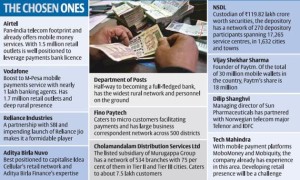Payment Banks stirring worries for Traditional Banks
The new era of payment banks is all set to take off and the Indian markets are already witnessing the tremors of the upcoming change. The rise of “mobile economy” driven by these payment banks are expected to impact the traditional banking system in a big way.
Now, let us first understand why the separate “Payment Banks” were required?
According to Reserve Bank of India (RBI), “there is a need for transactions and savings accounts for the under-served in the population (migrants, people below poverty line, daily wagers, socially backward class etc.) with lower transaction cost enabling high volume-low value transactions in deposits and payments / remittance services in a secured technology-driven environment & to achieve this goal, “Payment Banks” were required”.
On the first phase, RBI has issued payment bank licenses to 11 companies out of total 41 applications. Licenses were given to companies like Paytm, Airtel, Vodafone, Reliance & others based on the fulfillment of certain pre-requisites & guidelines.
As per the recent estimates of Bank of America Merrill Lynch, the share of Indian mobile banking is poised to raise upto 10% from current 0.1% in the payment market with a value of approx. $3.5 trillion thus impacting core revenue area of traditional banks like commission on RTGS / NEFT / Cheques
As per RBI guidelines, a payment bank can offer
-
ATM / Debit Cards
-
Issue Cheques / Drafts
-
Take Deposits
-
Payment / Remittance Services
-
Financial Products like Mutual Funds / Insurance



